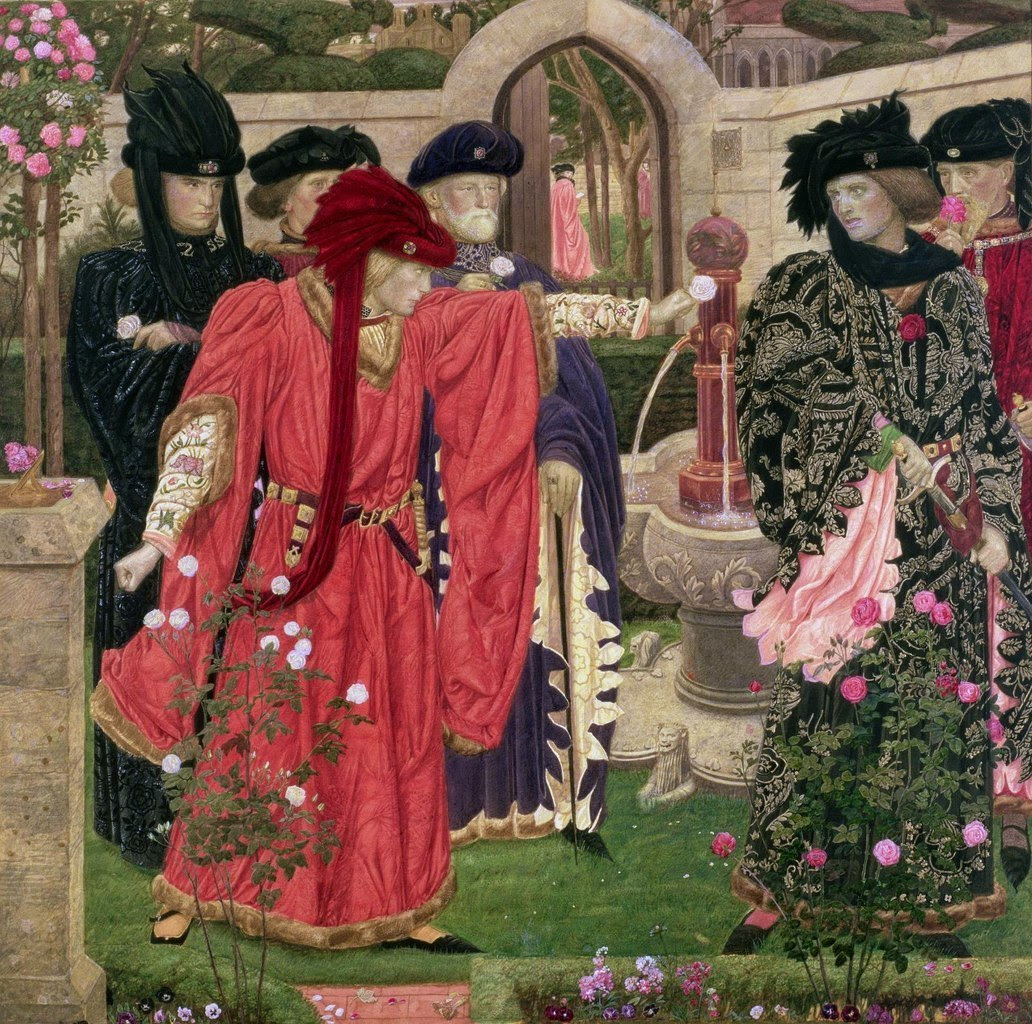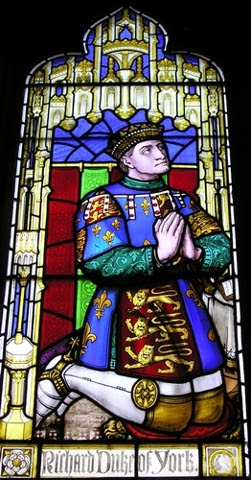RICHARD PLANTAGENET, 3RD DUKE OF YORK, CLAIMANT TO THE ENGLISH THRONE
AND ONE OF THE MAIN LEADERS OF THE WAR OF ROSES
[WAR BETWEEN THE HOUSES OF LANCASTER AND YORK,
BOTH DESCENDANTS OF KING EDWARD III]
[HISTORICAL IMAGE]

EDWARD PLANTAGENET, FOURTH DUKE OF YORK,
SON OF RICHARD, THIRD DUKE OF
YORK, THE LATER KING EDWARD IV
[FICTION]

RICHARD NEVILLE, 16TH EARL OF WARWICK, THE KINGMAKER
COUSIN TO EDWARD IV, FIRST ALLY TO HIS FATHER, RICHARD,
DUKE OF YORK, THEN TO KING EDWARD IV
LATER THEY BECAME ADVERSARIES AND THE KINGMAKER TURNED
TO MARGARET OF ANJOU [BECOMING A ”LANCASTRIAN] TO RESTORE HENRY VI TO THE THRONE
HE FAILED AND LOST HIS LIFE IN THE BATTLE OF TEWKESBURY
HIS DAUGHTER, ANNE, LATER BECAME QUEEN OF ENGLAND,
MARRIED TO KING RICHARD III [BROTHER TO KING EDWARD IV]
[FICTION]

ANNE PLANTAGENET, DUCHESS OF EXETER [MARRIED TO HENRY HOLLAND,
3TH DUKE OF EXETER], DAUGHTER OF THE DUKE OF YORK
[FICTION]
ANNE OF YORK’S HUSBAND, HENRY HOLLAND, THIRD DUKE OF EXETER, SON
IN LAW OF THE DUKE OF YORK, WHO BECAME A SOLID
LANCASTRIAN, PROBABLY ONE OF THE CAUSES OF
THE DIVORCE OF THE COUPLE
[FICTION]

WAR OF THE ROSES
SCENE AT THE TEMPLE GARDEN
RICHARD, DUKE OF YORK, WEARING A
WHITE ROSE, TO CONFRONT
HIS POLITICAL RIVAL AND ENEMY,
EDMUND, BEAUFORT, 2ND DUKE OF
SOMERSET, FORCING HIM TO
CHOOSE A RED ROSE
THE NOBLE LORDS TAKING SIDES
THIS IS A SHAKESPEARE SCENE [HENRY VI]
AND NOT BASED ON ANY HISTORICAL
EVIDENCE
KING HENRY VI OF ENGLAND
[HISTORICAL IMAGE]
MARGARET OF ANJOU, QUEEN OF ENGLAND
[HISTORICAL IMAGE]

TWO IMAGES OF MARGARET OF ANJOU, QUEEN OF ENGLAND
[FICTION]

EDMUND BEAUFORT, 2ND DUKE OF SOMERSET, FAVOURITE
OF MARGARET OF ANJOU AND BITTER ENEMY OF RICHARD,
DUKE OF YORK
[FICTION]
WILLIAM DE LA POLE, IST DUKE OF SUFFOLK, IN FAVOUR
BY BOTH QUEEN MARGARET AND KING HENRY VI
COUNCILLOR OF KING HENRY VI
HISTORICAL IMAGE
Dear Readers,
civil war between 1455 till 1485 (although some let it end in 1471,
of the royal Lancaster House was finished by the death of
exterminated the old English nobility.
Many colourful characters passed the bloody theatre, like the determined and hard
”Kingmaker”, who would ultimately
I myself hold the opinion, that when King Edward would have concentrated
on the military (he was an extremely capable military commander)
and the Earl of Warwick on
ruling and diplomacy, they whould have been made a deadly double and perhaps
alas, had a mental illness his tendency to forgiveness and
aversion of war and bloodshed, characteristics, which were admired
in Medieval women, but not in men, especiallynot Kings and
noblemen, had to be brave warriors, as Henry VI’s father,
I want to focus in particular on the causes and events, that led to such a
disastrous period in English history and the end of the
ENTER THE WORLD







.jpg)






